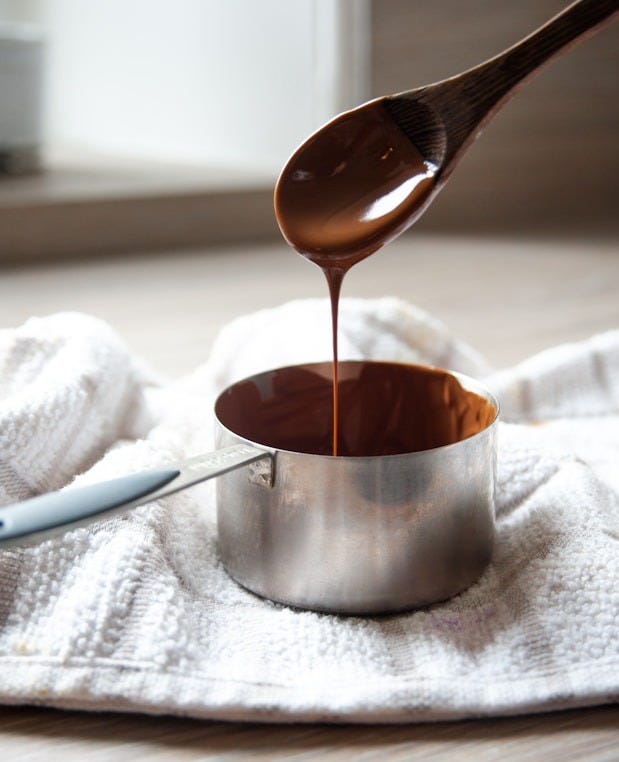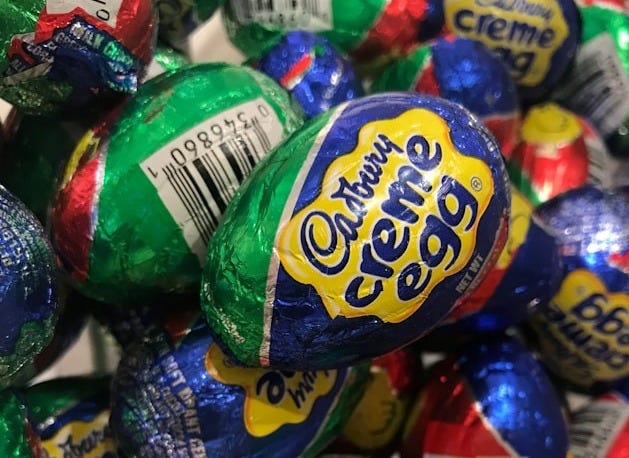Photo by Maria Georgieva on Unsplash
Hello everyone,
I have been looking for lovely pictures of chocolate for this post. Wow, there are so many. My mouth is literally watering. The craving to go and eat some is huge. My ability to manage chocolate cravings is helped by living remotely and being so far from a shop I just can’t be arsed to go and get some. The ‘local’ shop also has a pretty poor offering, helps, if annoying.
You guessed it. I LOVE chocolate, love it. 🍫💖
Photo by Tetiana Bykovets on Unsplash
Here in the UK it is about to be Easter weekend. We have bank holidays tomorrow (Friday and Monday). There have been jobs in my past where bank holidays were just another day, but today, I can take bank holidays off.
Traditionally on Easter Sunday we eat chocolate Easter Eggs. I had no idea where this somewhat, strange custom came from!
I hold my hands up, I asked ChatGPT. And here is what it told me, and I quote directly:
🥚 Eggs as a Symbol
Ancient roots: Long before Christianity, eggs symbolized new life and rebirth in pagan spring festivals.
Christian tradition: In Christianity, the egg came to represent the resurrection of Jesus—a shell (the tomb) broken open to reveal new life.
⛪ Easter and Eggs in the UK
In medieval England, eating eggs was banned during Lent (the 40 days before Easter), so people would save them up and give them out at Easter, often painted or decorated.
By the Victorian era, decorative eggs made from cardboard or satin and filled with sweets became popular among the upper classes.
🍫 Enter: Chocolate
Chocolate eggs started in France and Germany in the early 19th century, and soon made their way to the UK.
Cadbury produced its first chocolate Easter egg in 1875, using the newly invented chocolate moulding process.
By the 20th century, mass production made them widely affordable, and the tradition exploded in popularity.
So now, in modern England, chocolate Easter eggs are a fun, sweet twist on an old custom that mixes springtime renewal, Christian meaning, and... a good excuse to eat chocolate.
It seems ChatGPT is developing a vague sense of humour!
Photo by Meghan Rodgers on Unsplash
Anyway, I am aware this is just a very general overview and I am aware there is so much more to this, but was just for fun. I am also aware, with respect, that for some, this is a religious weekend. I am not religious, hence the tone of this post.
I am writing today about urges, just briefly. About the science behind the urges that we feel.
What is an urge?
Many urges are not just natural they are vital for us to stay alive. It starts in our brain. The urge to drink and eat, for example. If we have a low blood sugar, our body, cleverly, creates an urge to eat. Urges are complex. And I am not going to get into the complexity of it here, in case I bore you to sleep (another urge!).
You could think of it as a biological signal saying something needs to happen and your brain listening and acting on it, making sure it happens. Various centres in the brain are involved along with brain chemistry such as neurotransmitters. In the mix also are behavioural and learned behaviours, our reward and motivation systems.
Buy me a coffee
I hope that you find this publication helpful? and maybe slightly entertaining? It is important to me to make my work accessible to as many as possible and so I currently do not have a paywall. I would be so honoured if you would consider buying me a coffee to help support my work. Thank you in advance. I seriously love coffee, mine is an oat, flat white, what is yours?
Less helpful, but understandable urges:
So lets take the chocolate urge to stay on topic! And different urges vary. But I know how many of use, struggle with sugar and eating too much of it. Sometimes, understanding it, can help us to manage these urges.
Chocolate stimulates the feel good chemicals in the brain:
Dopamine
gives you that "reward" feeling, reinforcing the craving.
Serotonin
improves mood and reduces stress.
Endorphins
natural painkillers that create pleasure.
Phenylethylamine (PEA)
sometimes called the “love drug,” it mimics the feeling of falling in love.
Our brain then thinks, mmmmmm, chocolate=pleasure, lets do this all over again and again and again….. It becomes a behavioural response. Just looking at these pictures will make many of us long for chocolate.
Then there is this part too:
Chocolate (especially milk chocolate) is rich in:
Sugar: spikes blood glucose, boosting energy and mood
+
Fat: makes it creamy and satisfying
+
Sensory: the feel of it in our mouths is just wonderful
This combination of sugar and fat is rare in nature, which makes it hyper-palatable. It is riches, as far as our brains are concerned.
We associate chocolate with comfort, a treat, something we deserve and this becomes a bigger urge when we are tired, hormonal, sad and so on. This is a learned behaviour.
Strong combination, eh? It is not surprising then, that the urge for chocolate is strong and hard to resist. Your brain literally thinks it needs it to survive! But we know, that this is not quite right! We do not need chocolate to survive, our early ancestors did not know what chocolate was. And humans are still here.
It is not our fault. Our brains are tricky and they don’t know what century we live in. Our brains can catch us out.
Next week I will write about some ideas to overcome these urges, most of the time.
I also believe, that unless it is going to cause some health harm, denying ourselves nice food, we enjoy just leads to mega bingeing and eating more than if we treat ourselves, now and then to nice things, including chocolate.
If you are an Easter egg eater, enjoy this weekend and know that you are choosing to eat your easter egg, and next week you can choose not too. BALANCE is everything.
Until next time.
With all kind wishes
Jane
Accredited Cognitive Psychotherapist
Cognitive Behaviour Therapy (CBT), Compassion Focussed Therapy (CFT), Mindfulness & Acceptance and Commitment Therapy (ACT)
➡️If you would like to work with me on a 1:1 basis you can contact me at: mail@janewatkinscbt.co.uk






